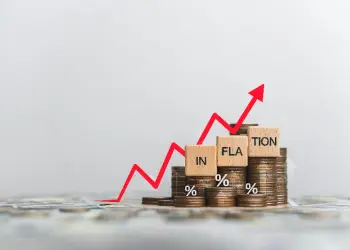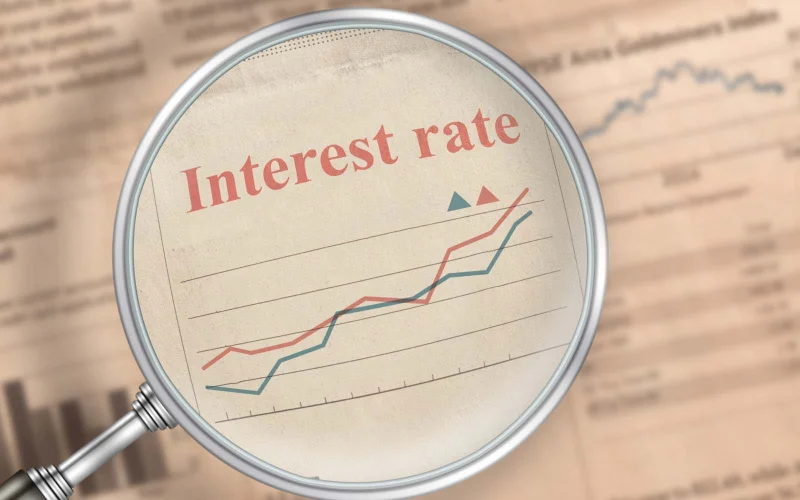trending
neon
Cirque du Soleil offers summer ticket deals
dining out
Celebs ditch the Strip for iconic Henderson restaurant
july 
trending
neon
Cirque du Soleil offers summer ticket deals
dining out
Celebs ditch the Strip for iconic Henderson restaurant
july 

As 2025 approaches, changes in capital gains tax laws could impact investment strategies for individuals and institutions. This article explores the key updates to tax policies and offers insights into how these changes may affect your investment portfolio




The capital gains tax is one of the most significant tax considerations for investors, affecting the returns on investments in assets like stocks, bonds, real estate, and other securities. As 2025 approaches, changes to tax laws could create new challenges and opportunities for both individual investors and institutions. Understanding these changes is crucial for anyone looking to optimize their investment strategies. This article provides a comprehensive guide to what investors need to know about capital gains tax in 2025.
Capital gains tax is the tax on the profit made from selling an asset, such as stocks, bonds, real estate, or other investments. The rate at which these gains are taxed can depend on several factors, including the duration the asset was held, the investor’s income level, and the type of asset being sold. There are two main types of capital gains:
1. Changes in Tax Rates
For 2025, several proposals to adjust capital gains tax rates have been discussed, with some potentially leading to higher tax rates for high-income earners. In particular, some changes might affect individuals in the highest income brackets, as policymakers seek to raise revenue for social programs and economic initiatives. Investors will need to track these potential changes to assess how they impact their investment returns.
2. Tax Brackets and Adjustments
The capital gains tax brackets may see changes in 2025, especially in terms of what qualifies as “long-term” vs. “short-term.” It's important to understand which income levels are impacted by these changes. For instance, the top capital gains tax rate might increase for those in the highest tax brackets, which could significantly impact investments in stocks, real estate, and other assets.
3. Tax on Dividends
Dividends paid by corporations may also face changes in tax treatment. While dividends from qualified stocks are typically taxed at the long-term capital gains rate, some changes could subject a larger portion of dividend income to ordinary income tax rates. This could have a particular effect on income-focused investors who rely on dividends for cash flow.
4. Exclusion of Certain Assets
In certain cases, specific assets, like the sale of a primary residence, may remain exempt from capital gains tax under the current rules, but any changes to these exclusions in 2025 could have an impact on homeowners and real estate investors.
1. Holding Assets for the Long Term
One of the most effective ways to minimize capital gains tax is by holding investments for more than one year, as long-term capital gains are generally taxed at a lower rate. Investors should focus on building long-term wealth and carefully evaluate whether short-term sales are worth the higher tax burden.
2. Tax-Loss Harvesting
Another strategy for reducing capital gains tax is tax-loss harvesting, which involves selling investments that have lost value to offset gains made elsewhere in your portfolio. This tactic allows investors to minimize their taxable income by realizing losses.
3. Investing Through Tax-Advantaged Accounts
Tax-advantaged accounts like 401(k)s, IRAs, and Roth IRAs provide a way to avoid paying capital gains tax on investments held within these accounts. Contributions to these accounts are either tax-deductible or made with after-tax dollars, and taxes are either deferred or not applied to capital gains at all, depending on the account type.
4. Consideration of State Taxes
In addition to federal capital gains tax, many states impose their own capital gains taxes, and these rates can vary widely. Investors should consider the potential state-level tax impact when planning their investments and strategizing for tax season.
1. Stocks and Bonds
Investments in the stock market, including stocks and bonds, are subject to capital gains tax. For stock investors, long-term investments generally result in lower tax rates. Bonds, on the other hand, can generate interest income, which is often taxed at ordinary income tax rates. Tax strategies for bonds may differ from those for stocks, depending on the investor’s overall strategy and goals.
2. Real Estate
Real estate is another asset that often generates substantial capital gains. Under current law, homeowners can exclude up to $250,000 of capital gains ($500,000 for married couples filing jointly) from the sale of their primary residence. However, changes to this exclusion could affect how investors in real estate and homeowners benefit from these tax advantages in 2025.
3. Cryptocurrency
Cryptocurrencies, such as Bitcoin and Ethereum, have seen increasing interest from investors, but their tax treatment is often complex. Like stocks, profits from cryptocurrency sales are generally subject to capital gains tax, and the specific tax rate depends on how long the asset was held.
As the U.S. government considers changes to capital gains tax rates and regulations, these shifts could have implications for global investors. Changes to tax rates may impact foreign investment in U.S. markets, potentially leading to changes in foreign direct investment and portfolio investments. Furthermore, changes to capital gains tax rates could also affect international tax treaties and how U.S. citizens are taxed on foreign investments.
As we approach 2025, capital gains tax remains a crucial consideration for all investors. With potential changes to tax rates, brackets, and exclusions, understanding how these adjustments will affect your investments is essential for optimizing your portfolio. By staying informed and adjusting investment strategies, investors can better navigate the evolving tax landscape and continue to build wealth effectively
As 2025 approaches, changes in capital gains tax laws could impact investment strategies for individuals and institutions. This article explores the key updates to tax policies and offers insights into how these changes may affect your investment portfolio
the latest

Banking System Reforms: How They Affect Your Savings and Investment Accounts
Banking system reforms are reshaping the financial landscape, and these changes could impact your savings and investment accounts. From interest rates to new regulations, understand how these reforms will affect your financial future. This article provides insights into the potential implications and how you can adapt your strategy to thrive in the evolving financial environment

Inflation vs. Investment: What to Do with Your Money in 2025
As inflation continues to challenge global economies, understanding how to protect and grow your wealth becomes more crucial than ever. In this article, we’ll explore how inflation is affecting investments in 2025 and provide expert advice on what to do with your money to safeguard your financial future. Whether you're new to investing or an experienced investor, learn the best strategies for navigating this economic climate.

U.S. Dollar's Rise: Impact on Foreign Exchange and Investments
The strengthening of the U.S. dollar is shaking up global markets, affecting everything from foreign exchange rates to international investments. In this article, we analyze how the dollar's rise impacts global trade, investment strategies, and economic stability. Understanding these effects is crucial for businesses and investors navigating the increasingly globalized financial landscape

Treasury Bond Yields Hit Record Lows: What It Means for You
Treasury bond yields have reached record lows, marking a significant shift in the financial landscape. As yields decline, the return on investments such as bonds and savings accounts also decreases. This article discusses the potential impact of these record-low yields on various forms of investment and offers guidance on how to navigate these changes in the financial market

Interest Rate Hikes: How It’s Affecting Personal and Corporate Finances
Rising interest rates are reshaping both personal and corporate finances. From mortgages and credit card payments to business borrowing costs and profits, the effects are profound. As central banks increase rates to curb inflation, both consumers and companies are adjusting their financial strategies. This article explores the current and long-term impacts of interest rate hikes on the economy.

Biden’s Economic Plan: Effect on Dollar & Money Supply
The economic policies introduced by President Biden have far-reaching implications for the U.S. dollar and the broader money supply. With the country facing various challenges, including inflation and recovery from the pandemic, Biden's approach involves major fiscal changes that could significantly affect the financial landscape

New Cryptocurrency Regulations Impacting Retail Investors in the U.S.
Recent changes to cryptocurrency regulations in the United States are having significant effects on retail investors. This article explores the new rules and what they mean for individuals looking to invest in digital currencies.

How U.S. Investment Policies Shape Financial Stability
U.S. investment policies play a crucial role in shaping financial stability by influencing capital markets, interest rates, and economic growth. Regulatory frameworks and government interventions determine risk levels, investor confidence, and long-term economic sustainability

How U.S. Economic Policies Are Reshaping Investment Trends
With shifting U.S. economic policies, investors are adjusting their strategies to respond to new market dynamics. This article explores the key policy changes and their influence on investment decisions